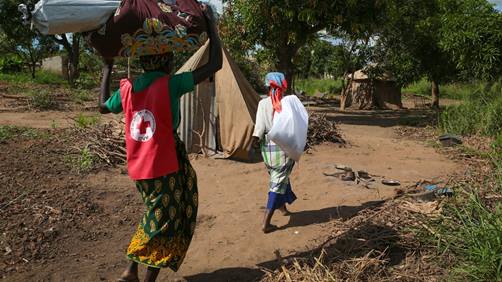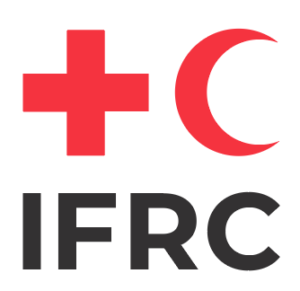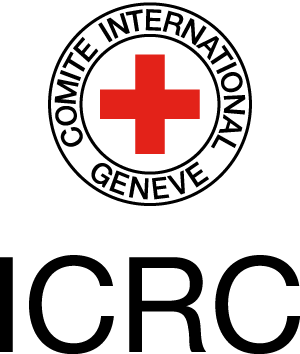Transferts monétaires et logistiques
Un soutien logistique et un prérequis à toutes les étapes de l’assistance monétaire et en coupons, de la préparation jusqu’au suivi et à l’évaluation. Une participation anticipée des logisticiens, y compris dans l’évaluation de faisabilité de transferts monétaires, dans l’étude de marchés, les achats et le suivi des fournisseurs, est nécessaire pour atteindre une compréhension globale des différentes options pour répondre aux besoins des communautés. La logistique est aussi cruciale dans la conception du programme, pour contribuer à augmenter la rapidité, l’échelle et la qualité de l’AEC en tant que modalité pour fournir une assistance humanitaire.

© Joost Ruigrok/ IFRC
Le renforcement des capacités pour les transferts monétaires et la logistique a été mis en œuvre à l’échelle du Mouvement en tant qu’engagement au « Grand Bargain » et à la résolution « Renforcer la Coordination et la Coopération au sein du Mouvement ». En parallèles de la création de guides, d’outils et de format pour le soutien logistique à l’AEC, des formations essentielles sont en cours d’identification pour diffuser la connaissance au sein des équipes d’achats et de logistique du Mouvement. Apprenez-en plus sur les transferts monétaires et la logistique ci-dessous ou sur ces pages :
>Ressources de formation Transferts Monétaires et Logistique
>Outils et format pour l’approvisionnement
>Transferts Monétaires et Marchés
Si vous avez besoin d’un quelconque soutien technique sur les transferts monétaires et la logistique n’hésitez pas à contacter :
- Niccolo Giancarli, CICR, Spécialiste global Transferts Monétaires, Marchés et Logistique (ngiancarli@icrc.org)
Résultats de recherche
1 octobre 2015
Service providers – Scope of work template
Type:
FormatOrganisation:
IFRCThis is a key document to be tailored with specific information to help service providers understanding the context and how they can help staff and volunteers of the Movement achieving specific goals. It should be used to share information related to the size, scale, speed and complexity of the programme, as well as to recipients; who and where they are, how often they will receive the grant and so forth. This document can also be found in the CiE Toolkit (M4_3_2_1 ).
14 décembre 2015
Nepal Earthquake: Getting Cash into the Hands of People in Need
Type:
VidéoOrganisation:
IFRCAfter the 2015 earthquake in Nepal, the American Red Cross provided cash assistance to families impacted by the disaster. Thus far, more than 34,000 families have received the shelter toolkits and cash grants.
1 janvier 2016
Cash Transfer program Final Report. Belize: Earl Hurricane
Type:
Étude de casOrganisation:
Belize Red CrossReport from the Belize Red Cross on an unconditional cash programme for basic needs in response to Hurricane Earl using pre-paid cards (framework agreement with Visa in Latin America).
1 janvier 2016
Exploring mobile money transfer through private partnerships in Bangladesh, CTP case study
Type:
Étude de casOrganisation:
IFRCCase study on using mobile money for unconditional cash transfers in response to Cyclone Komen in Bangladesh, with a focus on opportunities and challenges in partnering with the private sector.
1 janvier 2016
Key mitigating controls for prevention and detection of fraud, CTP Case
Type:
Étude de casReport highlighting the concerns of misuse and fraud connected to the use of cash based interventions, providing guidance on standard processes in preventing, deterring and detecting fraud.
4 février 2016
Lessons Learnt Workshop
Type:
ApprentissageOrganisation:
Pakistan Red Crescent SocietyThis document reports findings following a workshop to review the CTP preparedness actions to support a pilot programme, implemented by PRCS to respond to the 2015 earthquake in Khyber Pakhtunkhwa province of Pakistan.
Page 8 of 143


